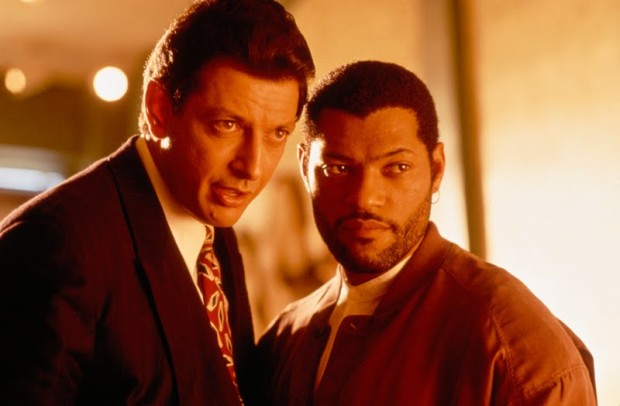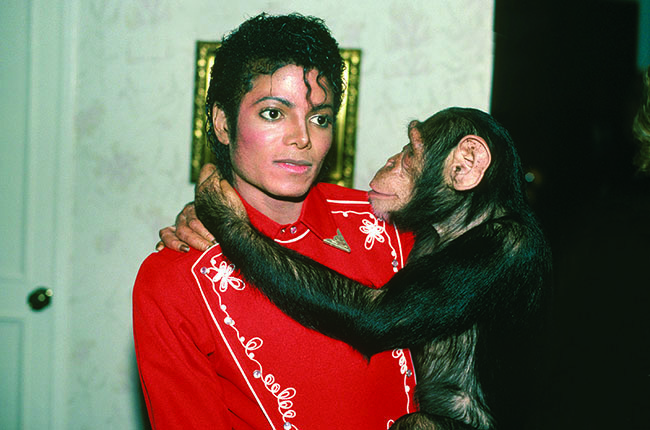Deep Cover with Lawrence Fishbone and The Blume!
Sorry no Amateur Offerings yesterday. The rest of the year is going to be hit or miss on posts. Gotta keep you guys on your toes. And, you know, Scriptshadow 250. Today’s movie suggestion actually has a dual purpose. You see, in tomorrow’s Force Awakens review, I’m going to go kamikaze on the character of Finn. And Fishburne’s character here in Deep Cover is what I’ll reference as THE RIGHT WAY to do what JJ and Kasdan messed up with in Awakens. I won’t give anything away more than that. The loose logline for Deep Cover is, “A policeman is recruited by a devious drug enforcement agent to infiltrate a smuggling organization seeking to expand into designer drugs.” This is an awesome movie. If you haven’t seen it already, I hope you enjoy it!
Absolutely LOVED Force Awakens!!!
Kylo Ren best film villain of the past decade. Rey was better than Luke Skywalker in Ep IV. BB-8 somehow made me forget 3PO and R2. Finn was huge disappointment. Like almost as badly conceived as Queen Amidala. That was the only major misstep.
For those saying this was a copy-cat job don’t realize how much JJ and Kasdan actually did here. Was expecting a terrible script based on reviews. This was deft screenwriting here. One major non-spoiler gripe. But you’ll have to wait til Monday for my screenplay-centric review!
In the meantime, feel free to discuss the movie in this thread. Please be considerate and put, in capital letters, “SPOILER” above all spoilers. If you do not include that word, we will consider what you’re saying to be spoiler free.
For those of you who have been following my Twitter and searching my hashtag #ss250, you may have experienced my disappointment last night. Script after script failed to come anywhere close to impressing me. And while there were different reasons for different scripts, I have started to notice a trend.
Writers will write a really intriguing opening scene that ropes the reader in, but then when they get past that scene, they bore the reader to fucking pieces. Pardon my French, but it’s happened so much that I’ve lost my marbles. And here’s what I think is happening. The opening scene doesn’t require any structure. There is nothing required of you other than to write something cool, shocking, mysterious, etc. Since it’s fairly easy to do that, no one has trouble with this scene (well, almost no one).
The second this scene is over, every writer goes into this dated Blake Snyder 1996 Beat Sheet Perfect 3-Act Structure Mode. They show absolutely no interest in trying to hide this. They might as well write above their scene: “This is the scene where my main character saves the cat.” “This is the scene where I establish my main character’s flaw.” “This is the scene where my protagonist encounters the inciting incident.”
Guys, the whole point of structure is to help you write the script. Structure should never be present ON THE ACTUAL PAGE. It should be invisible. The second people start understanding what it is you’re doing, suspension of disbelief is eliminated and you’ve lost the reader. So instead of following some page-dependent ancient structural paradigm, just focus on the main story beats (end of act 1, character goes on their journey, middle of act 2, mid-point twist, end of act 2, hero at his lowest point).
But within each act, play more. Be less predictable. Your only job is to make the reader want to keep turning the pages. To do that, just keep dangling story carrots out there. Questions that the reader will want answered. It doesn’t matter how you do this, as long as you do it. Structure is your friend. But it’s just as bad if you’re a slave to it as if you don’t use it at all.
Here’s to hoping tomorrow’s scripts fare better!
Reviews are coming in. Here are some spoiler-free ones:
Slash-Film (positive).
AICN-Quint (positive though feels like he’s holding back).
AICN-Nordling (slightly positive to kind of negative).
What worries me is that the reviews have that “Prequel Reviews” feel to them. Remember those? “Oh, it was amazing. But there were a few problems here and there. But it was amazing!” Like, “I’m trying to convince myself” here.
But anyway, here’s my question. You’re Disney. You hold the world premiere of one of your biggest movies ever on a Monday. You then tell everyone who saw the movie that they’re not allowed to review the film until 12:01 AM on Wednesday (so effectively 9 am Wednesday, since that’s when the normal world will wake up and read the reviews). With showtimes beginning, I believe, Thursday at noon, this gives reviewers barely more than 24 hours to get their thoughts out to the general public before the public sees it.
Does that sound strange to anyone but me? Doesn’t it feel a bit like they don’t have a lot of confidence in the film? I mean why not just let people review it after they come out of the theater on Monday?? It seems so strange. I’d understand it if they screened the movie three weeks ago. But this is the same week it comes out.
Regardless of whether any of that is relevant, The Force Awakens’ fate will lie with something the general audience isn’t even aware of – the fact that its screenplay was rushed. I understand that corporations want their money now, but it’s so dangerous to rush anything that you want to be good. Especially when you consider that most movies which are terrible (Transformers) had trouble achieving even a mediocre screenplay with FIVE TIMES the amount of time Abrams and Kasdan had to write this.
The thing that suffers the most when you rush a screenplay is plot. It’s easy to come up with the grand sweeping centerpieces of your story. But it takes a hell of a lot of time to connect them all in a natural, convincing, invisible way. So what’s the common critique I keep hearing out of all the Force Awakens reviews? “Contrived plotting.” “Lots of coincidences.” “Things feel left out.” “Things don’t always come together naturally.”
I know, I know. I haven’t seen the movie yet. But this is exactly what I was terrified of when I heard how quickly they were writing the script. Good scripts always take time. Especially scripts that have a lot of moving parts (lots of characters, jump around a lot). You may be able to write something quickly that involves three guys in a barn (Untitled Contained Barn Movie – coming to a theater near you). But 50 guys, gals, and aliens spanning a couple of dozen planets and starships??? No, you’re going to need fucking time for that. And to think that Disney originally wanted to release this in MAY! What were thinking under that timeline? 5 days for the script? 5 and a half?
I’m seeing the movie Thursday night and I guess in a way, I’m glad I heard about these issues ahead of time. I went into The Phantom Menace with huge expectations and got boned. Maybe the cautious route will result in a more satisfying experience. Let’s hope. And may The Force be with us all.
p.s. I’m still reading and reviewing Scriptshadow 250 scripts for 2 weeks over on my Twitter. You can go there to get tips and updates. Also, you can go through the archives by searching for the tag #ss250!
Every year the Black List comes out, and every year there’s a debate around what happened to all the good scripts. Is the Black List getting worse? That’s not an easy question to answer. But there are a few factors involved to help you come to a conclusion.
For starters, Hollywood has become terrified of original spec screenplay ideas. And why wouldn’t they be? They’ve given them box office bomb after box office bomb (Draft Day, Transcendence, American Ultra, That Awkward Moment, 47 Ronin). If we, the writers, haven’t been giving them something they can make money off of, why should they keep buying scripts from us?
As a result, Hollywood looks almost exclusively to IP. Stuff needs to be proven in another form of media before they risk millions of dollars on it. This has caused screenwriters to adapt. We can’t give them original spec ideas anymore, so we have to give them a pseudo form of IP – biopics and “the true story.” It’s the only loophole we have. This is why you read The Black List and see all of these unimaginative uninspiring true stories/biopics. Because that’s the only thing the studio system will allow us to sell them anymore.
The original spirit of The Black List celebrated imagination, originality, and creativity, which is why we feel so robbed that those qualities no longer seem like priorities. And to that end, it shouldn’t be a surprise that Bubbles snagged the top prize. It was the only script that gave Hollywood what it wanted (a true story/biopic) and the Black List voters what they wanted (a fresh/original way of telling a story).
This could lead to a whole other discussion about why our original-idea specs have gotten so bad (because Hollywood has put so many restrictions on them. They must be quick reads, have low page counts, contain an overly simple premise, etc.). But to go there would be bitter and I don’t want to do that. Not on the same week that The Force Awakens opens!
So I’ll leave you with this – and it’s something I continue to believe wholeheartedly – if you write something really fucking good, no matter whether it’s a biopic or something insanely original, it will make The Black List. It will sell. It will get attention. Because there aren’t many really good scripts out there. Your content is needed. So keep writing my friends. Your time will come as long as you work your ass off for it.
Some Black List reviews of mine!
Number 1, Bubbles.
Number 3, The Libertine.
Number 5, Crater.
Number 8, Pale Blue Dot.
Number 11, Eli.
Number 12, Septillion to One .
Number 17, The Water Man.
Number 22, Hammerspace.
Number 25, The Virginian.
Number 29, Mayday.
Also, join me on Twitter as I live-tweet thoughts on the Scriptshadow 250 contest scripts I’m reading. You can access the archives of my thoughts via the hashtag #ss250.







